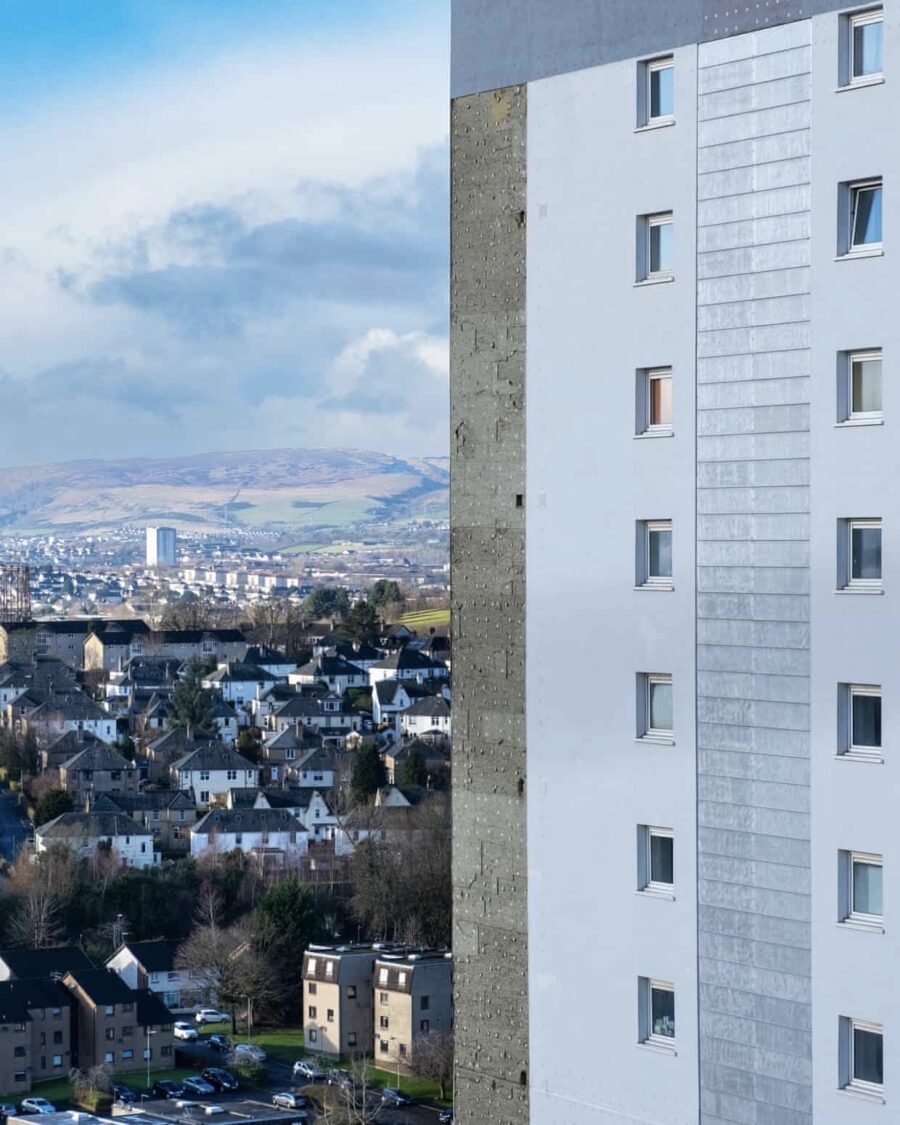A press release from the Wynford Residents Union
The Wyndford Residents Union release their Report In Praise of Sturdy Buildings, being a consolidated, joint response to the several reports that the Wheatley Group, owners of the four tall blocks with their 600 social homes, have issued in justification of their attempts to blow them up. The Wheatley Residents Union Report, by respected industry professionals, demolishes the arguments put forward to justify the loss of much-needed homes, and the consequent loss of 47,000 tonnes of carbon.
The main points:
The Intergovernmental Panel on Climate Change’s Report, of 20 March 2023 – the definitive, comprehensive and “last chance” word – says that the Retrofit of existing buildings is key to avoiding climate disaster. Glasgow trumpets its retrofit credentials including running retrofit “summits”; and the Scottish Government couches many pronouncements in “Net-Zero” terms. And yet here in Glasgow, post-COP and in plain sight, a carbon crime is being planned.
Calculations based on industry standard (LETI) data show that (as a minimum) a huge 47,000 tonnes of embodied carbon were emitted when the towers were initially built. That carbon is providing the benefit of 1200 bed-spaces right now. Given this is our “last chance” we need to retain all the benefit of historic carbon we can and avoid emitting more. Wheatley advance the opinion that demolition loses none of this existing carbon benefit, which is clearly nonsensical. Standard calculations show that 99.85% of the embodied carbon benefit is lost in attempts to recycle it.
The structural case that Wheatley advances, that alterations to create larger flats are “not feasible”, is based on openings being made in the same location all the way up the towers. It is not proved and, in any case, openings can be made in different locations on alternating floors, retaining the structural integrity of the towers as well as providing a greater variety of flats.
Retrofit can achieve the same high standards of airtightness and insulation as newbuild. Wheatley advances the nonsensical idea that this is not the case. Wheatley’s reports assume performance from the new-build above even the highest current definition.
The newbuild the reports praise is likely to be standard modern construction: timber frame dipped in toxic rot treatments and insulation foamed with cyanide – far more damaging than retaining the sturdy concrete of the towers.
Such newbuild construction will also, at the end of its short life, be incapable of being recycled in turn, its toxins meaning it must go to registered toxic landfill.
At the end of those maybe 50 years, when the modern buildings have failed and a future Wheatley is planning its next “regeneration”, these sturdy towers would still be standing, carbon intact and ready for their next lease of life. Valuing sturdy buildings, that last generations, rather than the flimsy ones we build today, is the root of sustainability – as the Intergovernmental Panel on Climate Change recognises.
The costs advanced in the Wheatley reports are not reliable: as a simple example our VAT advisor reports that a large social housing provider such as Wheatley would expect to substantially reduce the £9+ million allocated for the 20% VAT on repair.
The Wheatley Group plan 300 low rise replacements, but haven’t seemed to notice that much of the unbuilt section of the site contains a very large Scottish Water attenuation tank, which cannot be built on. Irony of ironies – to get their 300 units the Wheatley might have to replace the towers with towers.
We note that when the Wheatley Group release reports they don’t put them in the public realm, putting out Press Releases only. We then need to submit “Freedom of Information” requests to view them. In contrast we are releasing the complete report, with its complementary structural report, and copying it direct to the Wheatley Group.
Our message to the Wheatley Group is a positive one: they are on the wrong side of history, but there is glory and redemption in admitting this and changing direction, and leading Glasgow’s retrofit revolution. We are keen to meet and talk.

